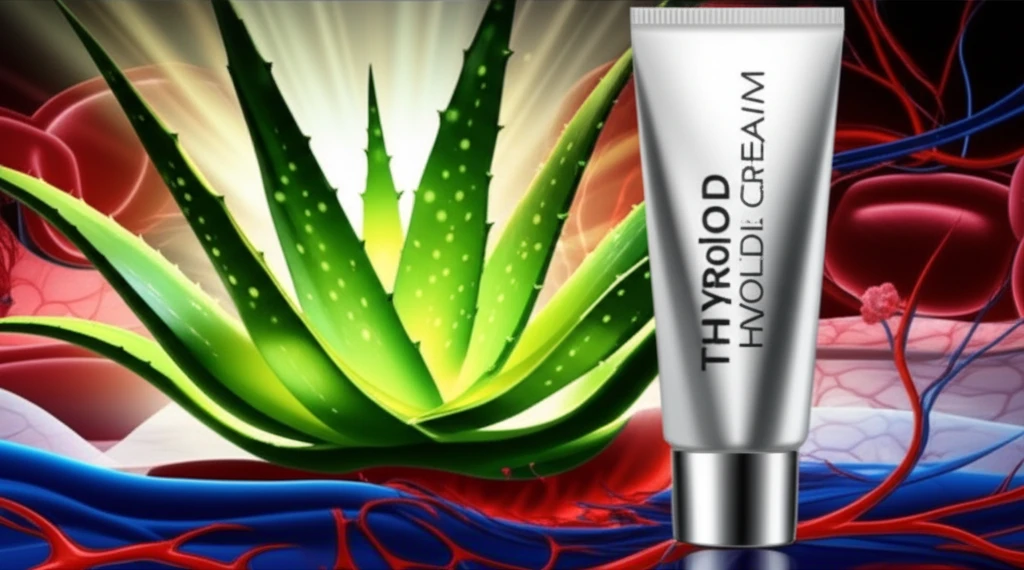
Aloe Vera vs. Thyroid Hormone: Which Heals Wounds Faster?
"Discover the surprising science behind natural wound healing and how aloe vera gel stacks up against thyroid hormone cream in promoting skin repair."
The quest for effective wound healing solutions has long been a focal point in surgical science. With numerous treatment options available, determining the most efficient approach remains a topic of considerable debate. This article delves into a recent study that sheds light on the potential benefits of aloe vera gel and thyroid hormone cream in promoting wound healing, offering new insights for those seeking faster and more effective recovery methods.
Wound healing is a complex biological process, involving interactions between cells, extracellular matrix, blood vessels, and various signaling molecules. Despite advancements in understanding these mechanisms, complications such as delayed healing and infections continue to pose significant challenges. Consequently, researchers are constantly exploring novel strategies to accelerate wound closure and reduce the risk of complications.
In this context, natural remedies like aloe vera and hormonal treatments such as thyroid hormone cream have garnered attention for their potential wound-healing properties. Aloe vera, derived from the aloe plant, has been used for centuries to treat various skin conditions, while thyroid hormone is known for its role in stimulating cell growth and tissue repair. This article examines how these treatments compare to conventional methods like silver sulfadiazine cream, providing a comprehensive overview of their effectiveness in promoting wound healing.
Aloe Vera Gel: The Natural Healing Powerhouse

Aloe vera gel (AV), extracted from the inner leaf of the aloe plant, is renowned for its diverse therapeutic applications. This natural remedy is packed with biologically active molecules that stimulate fibroblast activity, enhance collagen synthesis, and promote the formation of epidermal tissue. These properties make aloe vera gel a promising candidate for accelerating wound healing and improving overall skin health.
- Increased Fibroblast Activity: Aloe vera stimulates fibroblasts, the cells responsible for producing collagen and other essential components of the extracellular matrix.
- Enhanced Collagen Synthesis: By boosting collagen production, aloe vera helps strengthen the wound site and promote tissue regeneration.
- Improved Angiogenesis: The formation of new blood vessels is crucial for delivering oxygen and nutrients to the wound, accelerating the healing process.
- Reduced Inflammation: Aloe vera possesses anti-inflammatory properties that help soothe the wound and minimize swelling and discomfort.
The Takeaway: Embrace Aloe Vera for Surgical Incisions
The research indicates that topical administration of aloe vera gel is a promising treatment option for surgical incisions. Its ability to enhance re-epithelialization and angiogenesis makes it a valuable tool for promoting faster and more effective wound healing. While thyroid hormone cream showed positive effects in the early stages of healing, aloe vera gel demonstrated superior overall results. By incorporating aloe vera into your post-operative care routine, you can potentially accelerate your recovery and minimize the risk of complications. Always consult with your healthcare provider to determine the best course of treatment for your specific needs.
